Entrepreneurs deserve more love. The events of the last week made that abundantly clear.
We were far from the SVB blast radius, but watching so many people on Twitter dismiss the impact of the fiasco on startups – even revel in their hardships – was infuriating. And un-American.
Imagine going to your family and friends, asking for their hard-earned money to help you chase your dream, knowing they only said yes because of the faith they have in you personally. Then, imagine convincing other talented people to join you, feeling like you’re individually responsible for their career, their livelihood, maybe even their family. That’s all after your spouse agrees to stay trapped in their stable job, to hold down the fort.
While carrying that weight, you choose a lawyer, an accountant, insurance broker, and payroll processor, to name a few. For first-time founders, those come by way of referrals. And, when a friend or board member recommends a well-known bank, the last thing you’re thinking about is stress-testing their balance sheet. You have a product to build and sell, a team to organize and inspire. Everything else is checking a box.
The idea that your bank might be insolvent in a flash – that your money might vanish – never has time to cross your mind.
Thankfully – and rightfully – thousands of entrepreneurs and their coworkers were spared this week. They were victims, plain and simple.
The societal benefits go far beyond the people saved. If even one aspiring business-starter was deterred by the ordeal, who knows what kind of world-changing innovation we may have lost?
America would not be America without our entrepreneurs. It’s in our DNA. Literally.
A European friend recently told me that the singular, unique characteristic of Americans – and the number one reason for our success – is our courage to fail. Think about it. Most of us trace our lineage to the only people with the genetic screws loose enough to sail across a deadly ocean for 90 days on a rickety, scurvy-ridden wooden boat.
Even today, immigrants brave long and often perilous journeys to get here. It’s no surprise they’re nearly twice as likely as native-born citizens to be entrepreneurs.
The rest of us are getting soft. We’d rather root for risk-takers to fail, to dunk on them when the breaks don’t go their way. It validates our decision to play it safe. Screw bailouts!
But the joke is on the haters. Because the risk-takers would just dust themselves off and start over anyway.
And we should celebrate them for it.
Here’s what we’re seeing:
Consumer confidence took a header this week, thanks in part to SVB. A glance at our Economic Sentiment Index won’t cheer you up, that’s for sure. Four of the five main indicators fell (confidence in buying a home ticked up a hair), with optimism for the overall U.S. economy falling most dramatically. People are feeling less secure about their personal finances too, which also revealed itself in scaled-back February consumer spending. If the mini bank crisis can be contained – as it appears to be – hopefully these numbers will bounce back.
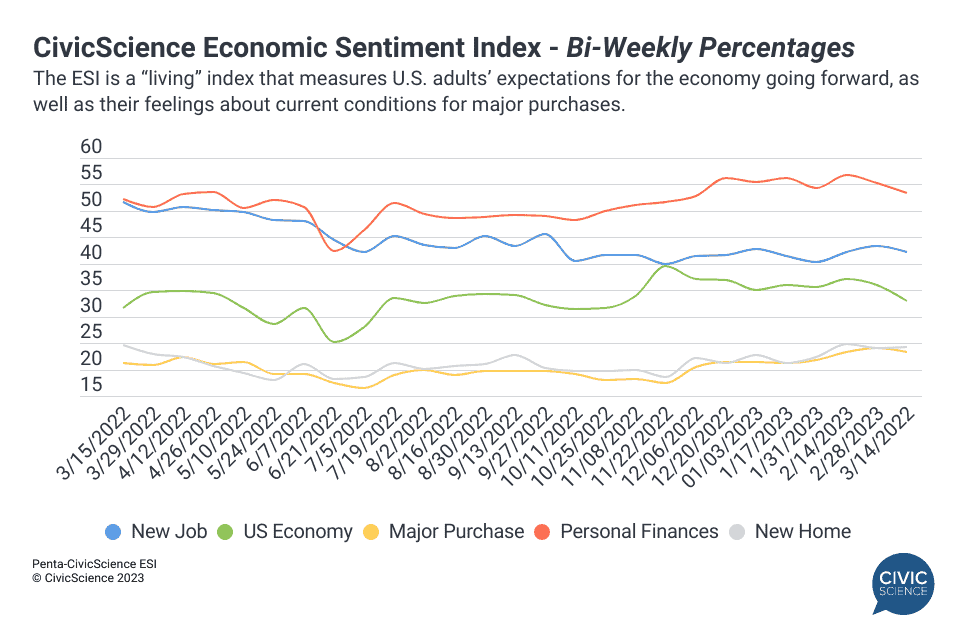
Trust in banks took a hit this week too, for obvious reasons. The percentage of Americans who say they have little to no trust in banks rose significantly over the past few days as news of the three bank closures reverberated through the press – and it’s even higher since publication. Notably, one group – crypto investors – saw trust levels drop most significantly, which is saying something because they didn’t particularly love traditional banks in the first place.
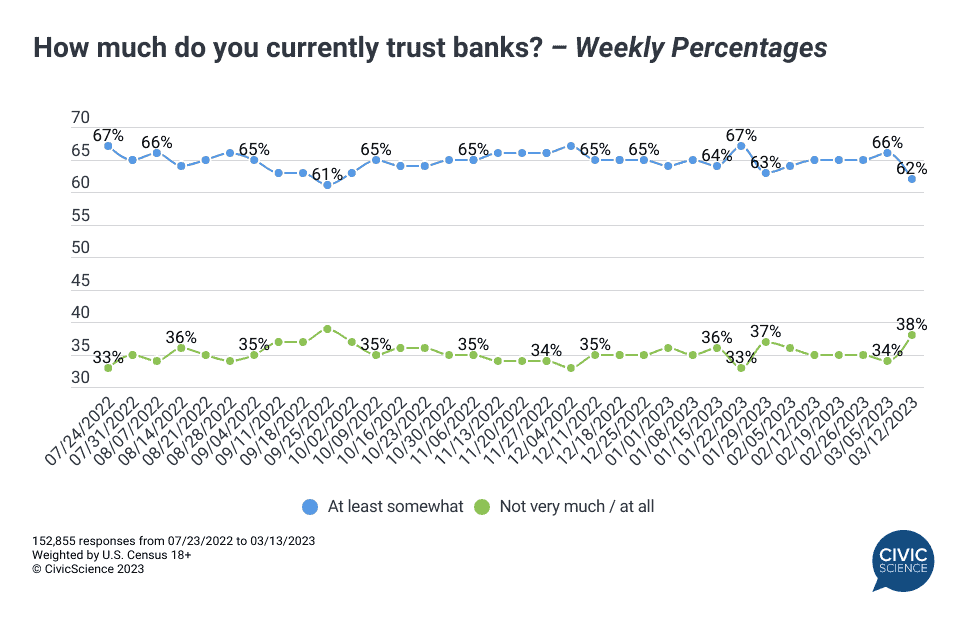
Hispanic Americans shop differently for their groceries. In our latest study (at least the ones we’re giving away for free) on Hispanic consumers, we delved into the unique ways these trend-setting 19% of Americans buy groceries and other staples. For starters, they’re much more likely than the Gen Pop to make most of their purchases through membership club retailers like Costco and less likely to frequent regional chains, especially in the U.S. Northeast and Midwest. They’re also less likely to shop for locally grown food, which has a lot to do with their urban centricity. What jumped out at me most was the extent to which social media influences their food-buying decisions.
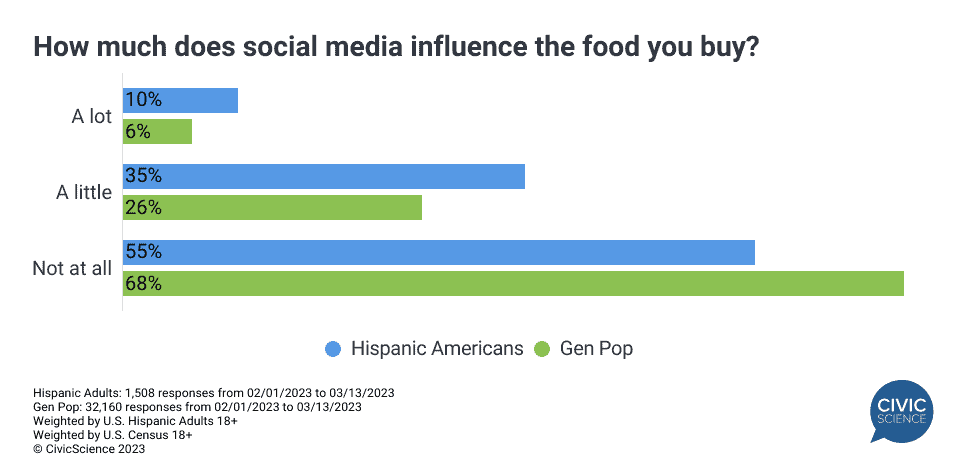
An overwhelming majority of Americans support granting the Biden Administration the power to ban TikTok. In a rare political topic that crosses party lines, U.S. adults are in favor of the RESTRICT Act, which would allow the White House to ban TikTok and other social media apps deemed a national security risk – by over 3 to 1. Even a majority of Gen Zs are at least somewhat concerned about the privacy and security risks of TikTok, while nearly half of older Millennials, Xers, and Boomers are “very concerned.” Action appears to be gaining steam.
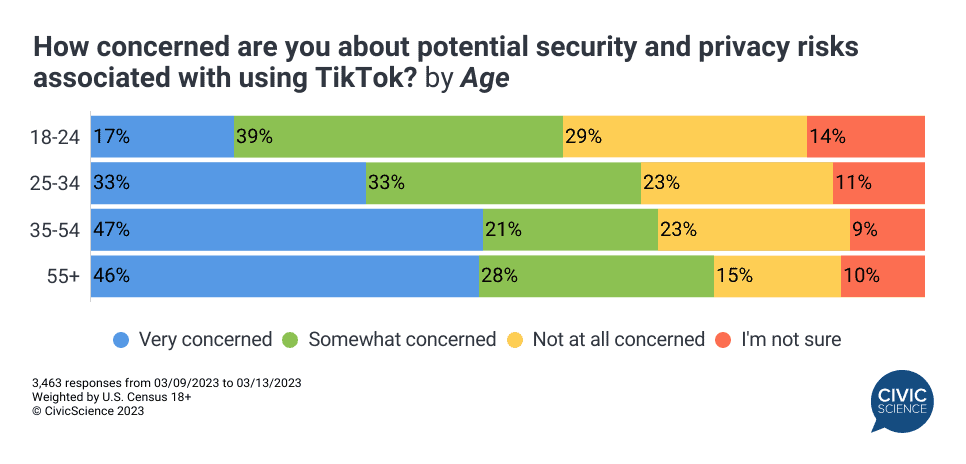
There’s a notable divide between men and women when it comes to talking about mental health – which may come as a surprise to anyone but women. In our 3 Things to Know this week (along with looking at the backlash against pharmacy chains that stop selling abortion pills), we explored the different ways men and women talk about their mental well-being with others. Women are much more likely than men to share their feelings with a variety of family members, friends, professionals/doctors, and coworkers – their spouse ranks 4th among go-to sources for support. Men on the other hand, by a big margin, say their spouse is #1 and are much less likely to talk to anyone outside of their marriage about it at all. A harsh interpretation is that men feel like they need to lean on their S.O. for emotional support, while women are less likely to feel like they can. I picture a lot of wives lying in bed this morning, reading this on their phone, and nodding vigorously.
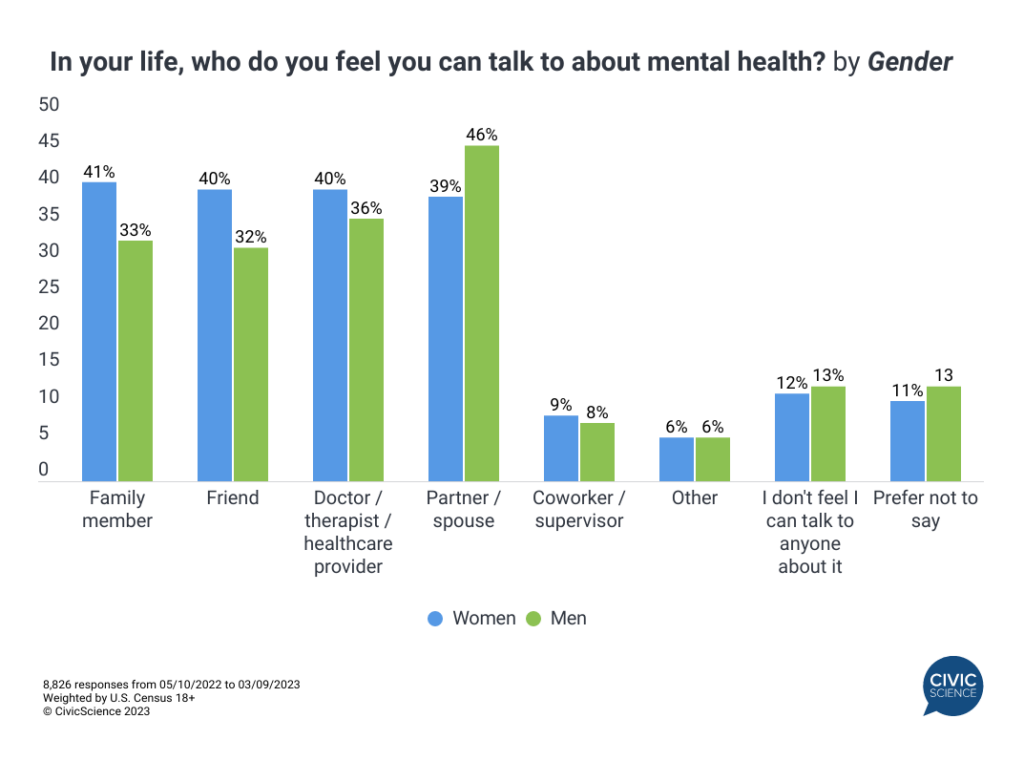
Our podcast guest this week was Dave Kimbell, the visionary leader and CEO of Ulta Beauty. We talked a lot about how emotional wellness is redefining the beauty category, their wildly successful partnership with Target, and how they’ve just kept growing and growing through all the ups and downs of the past three years. Listen to it.
More killer intel from the InsightStore this week:
- Of the big national retailers, Walmart ranks #1 for grocery shopping among Gen Z;
- As interest in plant-based meat wanes, lab-grown alternatives won’t be filling the void anytime soon;
- Interest in pickleball appears to be plateauing too;
- Grocery delivery intenders way over-index as fitness app users and more tidbits;
- Interest in Men’s and Women’s March Madness is down this year.
The most popular questions this week:
- If given the opportunity to go back in time millions of years to see the Earth in a prehistoric state, would you do it?
- Would you rather know when your death will happen, or not know at all?
- Do you feel the name you were given at birth suits you?
- Have you ever written a song?
- How often do other people comment on your height?
Answer Key: Hell yeah; No effing way; Dick? Depends who you ask; Yes; Only when Tara needs something from a high shelf.
Hoping you’re well.
JD








